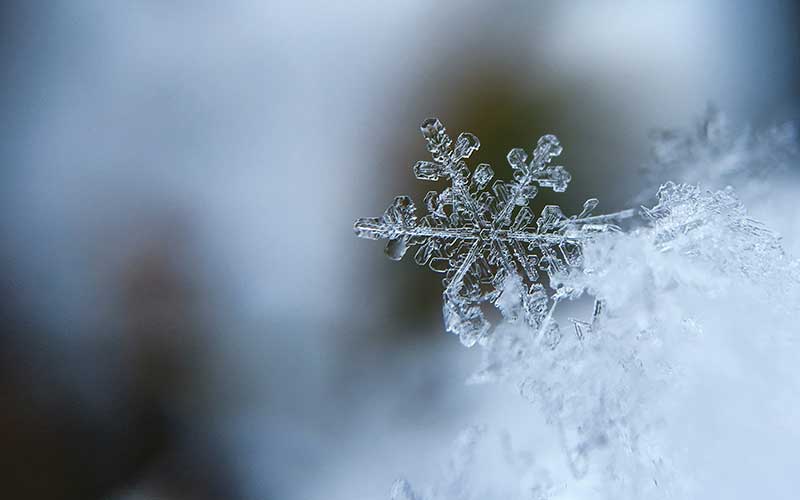Our first winter weather event of the season turned out to be relatively mild. Icy conditions on roads, walkways, and parking areas did necessitate de-icing salts being spread for safety’s sake. Road salt formulations work by lowering the freezing point of water. A good chemistry for maintaining traction on inclement days, but not so good when that salt encounters our landscape.
Salt can cause injury to sensitive plants via contact with foliage as well as roots. Vehicle traffic on salted roads can generate a fine salt spray that drifts through the air, landing on nearby vegetation. White pines are prone to foliar damage from salt spray resulting in browning of needles. Salts can also become concentrated in water flowing off the sites they were spread on and into the soil that supports plants. High salt levels can damage soil structure making it impervious to air and water, two things plant roots require. Salts can also alter soil pH. Plants are adapted to perform best in a narrow range of soil pH. Move outside of this range and plants become stressed and can decline.
Here are some tips to keep your landscape safe from salt.
- Stay home and wait for the temperature to rise above freezing!
- If you must go out, use only enough salt to get the job done.
- Be careful when using mechanical spreaders to avoid overshooting the intended surface.
- Limit use of some walkways during icy conditions, when possible, to avoid the need for using salt.
- Do not push or throw snow laden with de-icing salts on lawns, landscape beds, or under trees.
- Avoid planting sensitive plants such as white pine in areas along roadways prone to salt spray.
Prevention is the key as foliar injury from salt spray and the creation of saline soils are hard to correct. If you have concerns about salt damage in your landscape, please give us a call. One of our experts will be ready to help. Happy winter!



